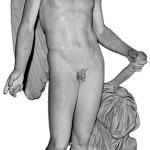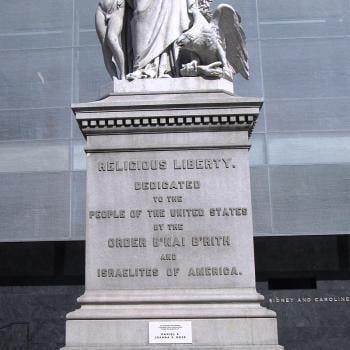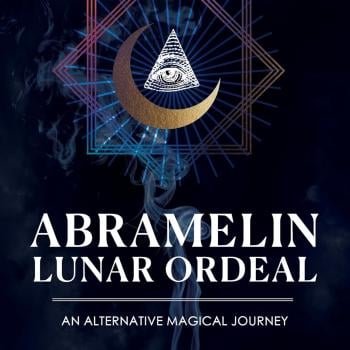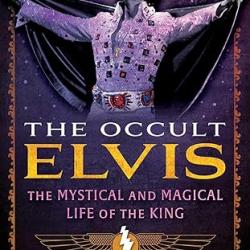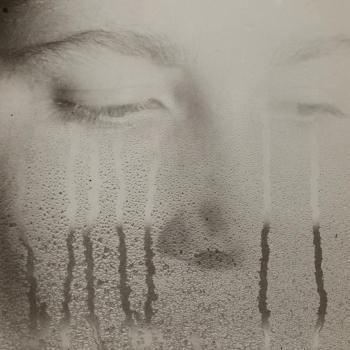The Hellenic Religion is centered on the veneration of Hellenic deities. Those striving for authenticity will embrace Hellenic Reconstructionism, while others will resonate with Hellenic Wicca, Greek Folk Magick, Channeling or Ceremonial Magick.
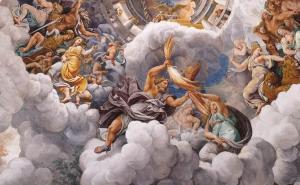
Igniting the Greek Gods – from Pinterest
Hellenic Reconstructionism
Thoughts on practicing Hellenic Reconstructionism taken from Hellenismos: Practicing Greek Polytheism Today:
The reason why familiarity with Greek mythology is very much part and parcel of our society and pop culture is because for hundreds of years classical education, which involves the study of ancient Greek and Latin texts, was standard throughout much of the Western world until at least the nineteenth-century. Ancient Greek writings are of considerable literary and intellectual merit,and have stood the test of time. Many of the core values of Western civilization can be attributed to the Greeks, including democracy and the right of individuals to have freedom of speech. As a byproduct of the widespread awareness of Greek mythology, more and more people are curious as to how the Greeks venerated their deities. …
Since the 1990s, there has been a revival of ancient Greek religious practices. The reconstructionists involved would like to see the ancient Greek deities restored to their former grandeur. While much of this revival has occurred in Greece, it is rapidly emerging throughout the rest of the world. Reconstructionism is never straightforward, and there are four important issues that need to be addressed.
First, there was no word in the ancient Greek language for religion, probably due to it being seamlessly integrated into everyday life. As a result there is no general consensus as to what the current revival should be called. Greek reconstructionists, for want of a more appropriate term, refer to their tradition as Hellenismos, Hellenism, the Hellenic tradition, the Hellenic religion, or Hellenic polytheism. Others, focusing on the twelve deities from Mount Olympus, refer to their tradition as either Dodekatheism or Olympianism. … I have chosen to use the term Hellenismos in this book for reconstructed ancient Greek religion.
Second, should the practice of Hellenismos be limited to people of Greek descent? A number of groups in Greece tie in the practice of Hellenismos, or an equivalent term, with nationalism. Certainly being Greek makes the practice of Hellenismos easier—being familiar with the Greek language and having the same blood coursing through your veins as the ancient Greeks are obvious advantages. There are, however, historical precedents for non-Greeks practicing Greek religion … and hence, Hellenismos should be available to all who feel the call of the Greek deities and wish to venerate them. It is, however, important to remain respectful and mindful of the ethics of cultural appropriation.
Third, just which ancient Greek religious practices should be revived? The Greek religion was characterized by appeals to ancient tradition and was simple in practice. There was, however, no one religion that was practiced by all Greeks, but rather there were variations in different regions, and even these variations were subject to change over time. There was also a significant difference between religious practices in public rituals and those in the home. It has already been stated that some reconstructionists limit themselves to the twelve Olympian deities, which are arguably the central aspect of the ancient Greek religion. Such a limitation ignores the non-Olympian deities, daimones (or spirits), heroes, and ancestors. The simple answer is that just as there were numerous ways of practicing ancient Greek religion, so too there are numerous ways of practicing Hellenismos—each equally valid, with individual practitioners freely developing their own personalized versions.
Fourth, are all practices suitable for contemporary practitioners? Much within ancient Greek religion was noble, but it was part of a cultural milieu, or social environment, that entailed animal sacrifice, occasional human sacrifice, slavery, the subordination of women, the practice of magick, and copious drug use. Greek religion was a product of its time, and as such was paralleled by numerous other religions. Times have changed, and there is a clear need for adaptation. Thus, Hellenismos should not be a reconstruction of ancient Greek religion as it was, but rather a reconstruction of what Greek religion plausibly would be had it survived. It is known that the religion changed in ancient times in response to changing needs as time passed, and so it would have kept changing had it survived until today. At the risk of stating the obvious, no laws should be broken by the practice of Hellenismos, and there can be numerous equally valid ways of practicing the faith.
[Mierzwicki, Hellenismos, 2-5]As is evident, there is scope for a number of plausible reconstructions of the ancient Greek religion.
Hellenic Wicca
“Wicca is a modern Pagan religion. … It was developed in England during the first half of the 20th century and was introduced to the public in 1954 by Gerald Gardner. … Wicca is typically duotheistic, worshipping and/or working with a Goddess and a God. These are traditionally viewed as the Triple Goddess and the Horned God, respectively. These deities may be regarded in a henotheistic way, as having many different divine aspects which can in turn be identified with many diverse pagan deities from different historical pantheons. For this reason, they are sometimes referred to as the ‘Great Goddess’ and the ‘Great Horned God’, with the adjective ‘great’ connoting a deity that contains many other deities within their own nature. Some Wiccans refer to the goddess deity as the ‘Lady’ and the god deity as the ‘Lord’.”
Because the Triple Goddess and the Horned God contain many deities from many pantheons, it is a short step to work with the Hellenic deities, and engage in Hellenistic Wicca.
As mentioned previously, many of us who are part of Western civilization are very familiar with Greek mythology. The Greeks left copious writings making it much easier to reconstruct their religious practices than those of other cultures.
Another advantage is that “the Classical Elements as we know them—Earth, Air, Fire, Water and Aether (spirit)—came to us via the Greeks.” Working with the elements is very important in Wicca.
Those who have Wiccan training may well prefer to work within the system they are familiar with, rather than embracing the practices of the ancient Greeks.
Greek Folk Magick
While folk magick is still practiced in remote Greek villages, there is little information available on it.
Chelydoreus, from Athens, Greece describes himself as an artist and writer as well as a lifelong scholar of religion and a former student of Theology at the University of Athens. He’s developing his own system, called “the Triskelion Path” comprised of Hellenic Polytheism, Witchcraft, and ecstatic Spirit-work.
He has this to say about Greek folk Magick, that it is:
“mainly usage of herbal lore, folklore (i.e. stories and legends dealing with the Otherworld like fae and nymphs), chants, incantations, simple spells, ‘superstitious’ actions, (casting out) the evil eye etc. I’m more well-versed in this because I have experienced it way before I even knew what Witchcraft is. Simple formulae like using herbs in a certain way, specific actions to bring about a desired effect, words of power etc are common methods of Greek folk Magic. Its characteristics are simplicity and effectivity. It touches the field of superstition because the old formulae can easily be shrugged off as nonsensical or their meanings forgotten. It can be exceptionally potent though, mainly due to the faith and energy backing it up through the centuries.”
In his blog, he cites a few examples for adventurous readers.
Channeling Hellenic Deities
On April 22, 2010 [Updated December 6, 2017] Huffington Post uploaded 5 Steps To Channeling Your Very Own Greek God/Goddess which summarized the approach used by Agapi Stassinopoulos, sister of Arianna Stassinopoulos Huffington who is a prolific author, a co-founder of The Huffington Post and the founder and CEO of Thrive Global. Agapi has a Master’s in Psychology from the University of Santa Monica. Agapi has a love for the Greek gods and goddesses, and is the author of Conversations with the Goddesses and Gods, Goddesses in Love and Unbinding the Heart: A Dose of Greek Wisdom, Generosity, and Unconditional Love as well as a number of others. She speaks and conducts seminars worldwide empowering others to create the lives they want.
Her website: https://wakeuptothejoyofyou.com/
Agapi’s approach is:
Step 1. Know your archetype. Determine your archetype and embrace it.
Step 2. Know what archetype you’re not. Unresolved psychology and misaligned choices can have us believing we are an archetype that we aren’t. This is what we need to heal.
Step 3. Reflect with compassion. Once we embrace who we are with compassion we can make a conscious decision to invite useful qualities into our lives that can lead us where we need to go.
Step 4. Time is irrelevant. The Gods and Goddesses have no time frame. They’re not American. Things happen in their own time and in their own cycle, which often means that patience is required. Know that everything is as it should be.
Step 5. Get in your body. Physicality, such as yoga, increases the ability to begin to tap into the emotions. Self-compassion is important – leave space for feelings to rise to the surface.
Bonus Step. Sharing your feelings with someone is not always easy, but it leads to growth!
Ceremonial Magick: Greek Influence Within Contemporary Occultism
As previously mentioned, since the 1990s the practice of Hellenismos has been resumed with its aim of as authentic a reconstruction as possible of ancient Greek religious practices. In the past, however, Greek elements have on occasion been incorporated within Ceremonial Magick and contemporary Paganism, imparting a pronounced Greek “flavor.” A brief overview of these, listed in chronological order, will serve to demonstrate a persistant interest in Greek religious practices.
Agrippa’s Three Books of Occult Philosophy
Henry Cornelius Agrippa (1468–1535) incorporated Greek as well as Egyptian, Latin, Hebrew, and Arabic esoteric lore into his Three Books of Occult Philosophy. The influence of this text cannot be overstated, as it is the primary reference for Western occultism.
The Magical Treatise of Solomon, or Hygromanteia
The Key of Solomon is the most widely disseminated grimoire in Europe, and is the ancestor of most grimoire-based ceremonial magick. Its oldest manuscript dates to the sixth century. The Key of Solomon is written in Latin and is popularly believed to be translated from a Hebrew original. However, it is actually based on The Magical Treatise of Solomon, or Hygromanteia, which is written in Greek, and its earliest manuscript dates to the fifteenth century.
Francis Barrett’s The Magus
Francis Barrett wrote The Magus in 1801, spearheading the occult revival in England. The book ended with a series of biographies, a number of which were Greek philosophers. Much of the material in Barrett’s text was taken from Agrippa.
The Hermetic Order of the Golden Dawn
The Golden Dawn was founded in 1887 fusing Freemasonry, Rosicrucianism, Qabala, Hermeticism, Alchemy, Theosophy, Enochian magick, medieval grimoires, ancient Egyptian religion, and a few Greek elements. Many of the Golden Dawn systems were taken from Agrippa. The Golden Dawn was incredibly influential, having counted numerous luminaries among its ranks. It has been stated that the best books on magick and the Qabala have been written by people who were either members of or influenced by the Golden Dawn, including S. L. MacGregor Mathers, A. E. Waite, Farrar, Israel Regardie, Aleister Crowley, Dion Fortune, Paul Foster Case, and H. P. Blavatsky. …
[In Hellenismos, I point out that a number of Golden Dawn rituals incorporate the call “Hekas, Hekas, este Bebeloi” which means “far, far away be the profane,” as part of the process of banishing negative influences from the ritual area. It is claimed that this phrase was originally uttered at the Eleusinian Mysteries. This phrase was incorporated into a number of rituals in the public domain. I, however, concluded that there is no evidence for this phrase having been used in ancient Greece, but it does give a lovely Greek flavor to a ritual]A very widely used ritual coming from the Golden Dawn is “The Bornless Ritual for the Invocation of the Higher Genius.” which is usually abbreviated to “The Bornless Ritual” based on Charles Wycliffe Goodwin’s 1852 translation of a “Fragment of a Graeco-Egyptian work upon magic from a Papyrus in the British Museum.” Goodwin’s translation of London Papyrus 46 is part of what is now known as the Greek Magical Papyri (written in Egypt from second century BCE to fifth century CE), and was an exorcism rite involving an invocation to a deity called the “Headless One.” The Golden Dawn version opted for invoking the “Bornless One,” rather than the “Headless One,” as a preliminary for Goetic evocations, which is a system for calling on seventy-two demonic entities taken from a medieval grimoire.
The Thelemic Magick of Aleister Crowley
Put simplistically, the system of magick advocated by Crowley was to live in accordance with one’s True Will rather than one’s free will. The term used by Crowley for Will was the Greek word Thelêma (will, wish, desire), and knowledge of one’s True Will typically came about through accessing one’s Holy Guardian Angel, which can be thought of as either a personal guardian spirit or the Higher Self. The Holy Guardian Angel acts as a conduit to divinity.
A number of Crowley’s rituals incorporate Greek elements. A small selection follows.
Liber Samekh, which is a modified version of “The Bornless Ritual,” was used by Crowley to access his Holy Guardian Angel. Crowley’s version is characterized by his claimed corrections of the “barbarous names” (words of power) in the original ritual.
Crowley’s Liber XXV: The Star Ruby, which is a reworking of the Golden Dawn’s Banishing Ritual of the Pentagram, opens with the often quoted “Apo Pantos Kakodaimonos,” which means “away, all evil spirits.” Kakodaimon literally means evil spirit. More Greek terms and phrases follow and no claims are made for the antiquity of any of them, other than for the names of a number of entities from the previously mentioned Chaldean Oracles.
In 777 and Other Qabalistic Writings of Aleister Crowley, there are numerous attributions to the various parts of the Qabalistic Tree of Life, including a selection of Greek deities. This makes possible a magickal exploration through Qabalistic magick of the nature of the deities listed using the appropriate colors, fragrances, gemstones, plants, animals, and so on.
Crowley presented his version of the Rites of Eleusis in Caxton Hall, Westminster, which were actually a series of planetary rites spread over seven consecutive Wednesday evenings from October to November, 1910. Being based primarily on Golden Dawn and Thelemic material, Crowley’s rites had nothing in common with the original ancient Greek mysteries of the same name, other than seeking to induce an ecstatic state in those present.
Israel Regardie’s Ceremonial Magic
Israel Regardie looked at “The Bornless Ritual” at some length, discussing the original ritual, the Golden Dawn version, and Crowley’s Liber Samekh.
Robert Graves’ The White Goddess and Greek Myths
In The White Goddess, poet Robert Graves introduced the idea of a “Triple Goddess” and tied her in with the three phases of the moon. The Triple Goddess has been embraced by Wiccans and other contemporary Pagans, where stages of the female lifecycle (Maiden, Mother, and Crone) are linked with lunar phases, and in turn linked with various goddesses, which vary depending on the tradition concerned. In Greek Myths, Graves interpreted Greek mythology in accordance with his personal vision as outlined in The White Goddess. Graves’ writings tend to be ignored by scholars.
Denning and Phillips’ Aurum Solis
In the mid 1970s, Melita Denning and Osborne Phillips began publishing the teachings of their magickal order, Aurum Solis. These teachings are fairly similar to those of the Golden Dawn. A number of the Aurum Solis rituals give readers the option of performing key portions in either Hebrew or Greek. There is far more Greek content in the Aurum Solis writings than in the Golden Dawn writings.
Murry Hope’s Practical Greek Magic and The Greek Tradition
Prolific author Murry Hope, in the first part of Practical Greek Magic, outlined Greek creation myths, the Olympic and lesser deities, mystery schools, oracles and introduced her idea of a “Heroic Path.” This Path, which occupies the more practical second part of her book, is a means of magickally experiencing the deities previously introduced. The Greek Tradition is essentially a continuation of Practical Greek Magic, providing further information and a reconstructed incubation rite. Hope did not, however, provide a step-by-step guide to constructing a Greek magickal ritual, leaving this up to the discretion of her readers.
Dolores Ashcroft-Nowicki’s The Ritual Magic Workbook
Dolores Ashcroft-Nowicki, of the Servants of the Light School of Occult Sciences, presented a program of self-initiation into Golden Dawn influenced ceremonial magick drawing upon the Egyptian, Greek, Roman, and Celtic pantheons. The book takes the form of twelve lessons, each of which is allocated a month for completion. Included within a selection of season rituals are a Greek Ritual of Spring and a Greek Ritual of Summer.
The Spring Ritual involves one person moving clockwise between the four cardinal directions and then between the four intermediate directions, pausing at each of the eight points to address various deities. Offerings of incense, wine, fruit, and seeds are then made. The Summer Ritual involves two people taking on the roles of Hermes and Flora, the goddess of flowers and performing joint blessings.
David Godwin’s Light in Extension: Greek Magic from Homer to Modern Times
David Godwin provided a wonderfully accessible overview of the extent of Greek religious and philosophical influence from the time of Homer, to medieval, and then to modern times. Godwin pointed out that there are no surviving Greek grimoires from archaic or classical times, and then proceeded to use rituals taken from contemporary sources. The closest that he came to using an authentic ritual was when he compared “The Bornless Ritual” with the original text on which it was based.
Evangelos Rigakis’ Threskia: The Greek Thelemic Tradition
Evangelos Rigakis has created a tradition, which he calls Threskia, from a blending of Crowley’s Thelemic philosophy with the art of Orphism and the science of Pythagoras.
Greek Numerology
Western occultism owes much to the practice of numerology, which can be seen as a magickal code connecting numbers with the letters of the alphabet, ascribing meanings, and providing rules for combinations. [David Allen Hulse, The Key of it All: Book Two]
Much Greek numerology can be traced back to the teachings of Pythagoras. [Kenneth Guthrie, The Pythagorean Sourcebook and Library]
While Hebrew Qabala is popularly thought of as providing a logical framework for Western occultism, many of its numerical properties can be seen as based on earlier Greek writings, such as those of Pythagoras. [Kieren Barry, The Greek Qabalah]
Jennifer Reif’s Mysteries of Demeter: Rebirth of the Pagan Way
Drawing inspiration from the Wiccan Wheel of the Year, Jennifer Reif produced a series of rituals to work a “Demetrian” Wheel of the Year. Little is known about the Mysteries of Eleusis, and so any attempted reconstructions are more creative rather than accurate.
Sorita D’Este’s Hekate: Keys to the Crossroads
This text provides an overview of what the ancients believed about Hekate, along with a collection of accounts of contemporary experiences with her.
[Mierzwicki, Hellenismos, 229-238]
Final Thoughts on the Hellenic Religion Umbrella
The goal of Hellenismos is develop a relationship with the Hellenic deities. Every practitioner should be free to find the path which resonates with them. The only thing that is important is that they should be obtaining results.
Given that I have previously referred to Crowley, I will close with his words in The Book of the Law, Liber AL vel Legis sub figurâ CCXX as Delivered by XCIII = 418 unto DCLXVI, [AL III:46]:
“… Success is your proof; courage is your armour; go on, go on, in my strength; & ye shall turn not back for any!”
The primary reference text for this article is:
Tony Mierzwicki, Hellenismos: Practicing Greek Polytheism Today
Tony Mierzwicki
Author of Hellenismos: Practicing Greek Polytheism Today and Graeco-Egyptian Magick: Everyday Empowerment.

